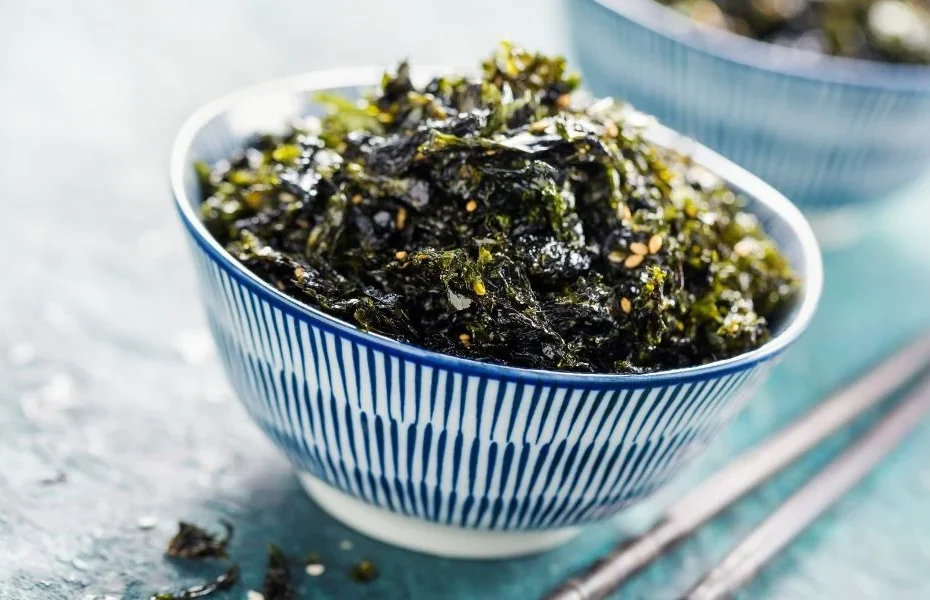Seaweed, often considered a staple in Asian cuisines, has gained popularity worldwide for its impressive nutritional profile and numerous health benefits. While it may not be a common ingredient in many Western dishes, seaweed is a versatile and nutrient-packed superfood that offers a wide range of advantages for your well-being. In this article, we’ll explore the health benefits of seaweed, its rich nutrient content, different types of seaweed, and how to incorporate it into your diet.
Nutrient-Rich Powerhouse
Seaweed is an underwater plant that comes in various forms, including nori, kelp, wakame, and dulse, among others. It’s known for its exceptional nutritional density, making it an excellent addition to a balanced diet. Here are some of the key nutrients found in seaweed:
1. Vitamins: Seaweed is a good source of vitamins such as vitamin K, vitamin A, vitamin C, and various B vitamins, including folate.
2. Minerals: Seaweed is particularly rich in essential minerals like iodine, calcium, potassium, magnesium, and iron.
3. Fiber: It provides a significant amount of dietary fiber, which is beneficial for digestive health and helps maintain a feeling of fullness.
4. Antioxidants: Seaweed contains antioxidants, such as flavonoids and carotenoids, that help protect cells from oxidative stress and inflammation.
5. Omega-3 Fatty Acids: Some types of seaweed, like wakame, are a source of heart-healthy omega-3 fatty acids.
Health Benefits of Seaweed
Incorporating seaweed into your diet can offer a range of health benefits:
1. Supports Thyroid Health: Iodine is essential for thyroid function, and seaweed is one of the best natural sources of iodine. It helps regulate the thyroid gland, which plays a crucial role in metabolism.
2. Bone Health: Seaweed is rich in calcium, magnesium, and vitamin K, all of which contribute to maintaining strong and healthy bones.
3. Weight Management: The fiber content in seaweed can aid in weight management by promoting feelings of fullness and reducing calorie intake.
4. Heart Health: The omega-3 fatty acids found in certain seaweed varieties may help reduce the risk of heart disease by lowering blood pressure and improving cholesterol levels.
5. Antioxidant Protection: Seaweed’s antioxidants combat free radicals, reducing the risk of chronic diseases and inflammation.
6. Digestive Health: Seaweed’s fiber content supports a healthy digestive system by promoting regular bowel movements and aiding in the growth of beneficial gut bacteria.
7. Rich in Essential Nutrients: Seaweed provides a wide range of essential vitamins and minerals, contributing to overall health and well-being.
Types of Seaweed
There are several types of edible seaweed commonly used in various cuisines:
- Nori: Often used for sushi rolls, nori is a dark, paper-thin seaweed.
- Kelp: Kelp is a large brown seaweed that can be used in salads, soups, and stews.
- Wakame: Wakame is a tender, green seaweed frequently used in miso soup and salads.
- Dulse: Dulse is a reddish-purple seaweed with a mild flavor, making it suitable for snacking or as a seasoning.
- Hijiki: Hijiki is a brown seaweed rich in fiber and minerals, commonly used in Japanese and Korean dishes.
Incorporating Seaweed into Your Diet
Adding seaweed to your diet is easy and can enhance the flavor and nutritional value of your meals:
- Sushi Rolls: Use nori sheets to wrap sushi rolls filled with vegetables, seafood, or tofu.
- Salads: Chop or shred seaweed and add it to salads for a unique texture and flavor.
- Miso Soup: Wakame is a popular addition to miso soup, providing a subtle oceanic taste.
- Snacks: Roasted seaweed snacks are available in many stores and make for a nutritious and satisfying snack.
- Smoothies: Add a small piece of seaweed to your morning smoothie for an extra nutrient boost.
- Side Dishes: Incorporate seaweed into side dishes, such as seaweed salad or sautéed seaweed with garlic and sesame oil.
Caution and Allergies
While seaweed is generally safe and nutritious, it’s essential to consume it in moderation. Excessive iodine intake from seaweed can lead to thyroid problems. If you have a known iodine allergy or thyroid condition, consult a healthcare professional before adding seaweed to your diet.
In conclusion, seaweed is a superfood rich in essential nutrients and offers numerous health benefits, from supporting thyroid health to promoting heart health and aiding in weight management. Incorporating different types of seaweed into your diet can be a flavorful and nutritious way to boost your overall well-being. So why not explore the world of seaweed and add this oceanic treasure to your culinary repertoire?
